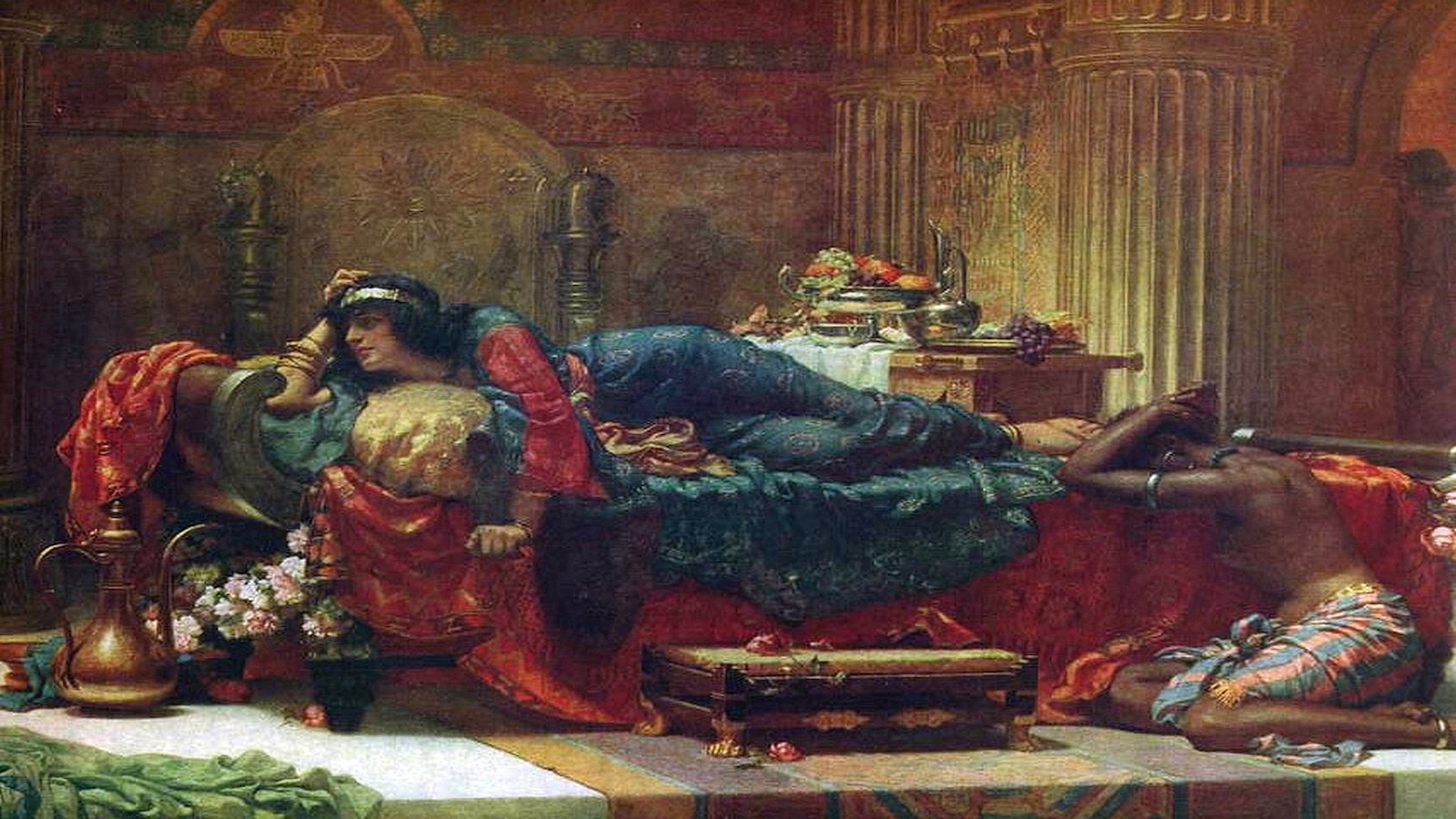Although Vashti and Esther never meet, the relationship between them is integral to understanding the events of the Book of Esther. Vashti disappears by the end of the first chapter, but she casts a long shadow over the rest of the book.
As we encounter Vashti in chapter one, we learn the following about her: She is beautiful and headstrong. She throws a good party. She refuses to have her appearances before the king regulated solely by his desires. For this last offense, Vashti pays dearly, losing her crown and incurring perpetual banishment from the king’s presence. At the close of chapter one it is clear that a woman in Ahasuerus’s court would do well to be dutiful and to come before the king as he commands. The essentiality of female obedience is further confirmed by the final verse of the chapter in which a missive is sent to all of Ahasuerus’s subjects reminding them in no uncertain terms that “every man must rule in his household.”
By contrast, Esther is presented at first as the perfect foil to Vashti. Whereas Vashti was willful and independent, Esther is passive and submissive. The reflexive use of the Hebrew word “LaKaKH” is constantly applied to her. She is “taken” in by Mordechai as a foster daughter, “taken” to the king’s harem, and “taken” before the king. She does not reveal her identity at the palace, “for Mordechai had commanded her not to tell.” She requests nothing at the harem, only accepting whatever Hagai, the king’s eunuch, chooses to give her. Even after she is crowned queen, we are told that Esther continues to obey the commands of Mordechai as she had done under his care. It is no surprise that Ahasuerus loves Esther. She is the model of docility, an exact antidote to Vashti.
Esther understands very well her role as Ahasuerus’s queen. When Mordechai commands her to appear before the king and intercede on behalf of the Jews, Esther responds that everyone knows that those who appear before the king unbidden are condemned to die. She has learned from her predecessor’s fate that the queen’s job is to come when she is called. Mordechai insists to Esther that it is her responsibility to plead for her nation.
This is a moment of crisis for Esther. She is caught between conflicting obediences to her foster father and husband. In addition, to come before the king unsummoned is an abnegation of her role as Vashti’s replacement. She was chosen to be queen since she represented the antithesis of Vashti’s persona. Esther’s position, her identity and quite possibly her life are all closely tied to her obedience to the king.
In this moment of fate, Esther looks into her mirror and discovers that she does not look quite so different from Vashti after all. She takes matters into her own hands and stands up to both sources of authority. Esther assumes control of Mordechai’s plan, changing and amending as she sees fit. Like Vashti, she will appear before the king only when she decides that the time is right–in this case after three days of fasting. Instead of following Mordechai’s suggestion and simply making her petition, she will throw a series of parties as Vashti did. In order to succeed, Esther realizes that she must take on aspects of the repudiated former queen.
Of course, we do not actually know why Vashti refused to appear before the King. It could have been out of modesty as the Midrash in Esther Rabbah suggests. Or as the Babylonian Talmud describes, she may simply have been unhappy with her appearance that day (a sudden case of leprosy according to Rabbi Yossi bar Chanina or the surprise sprouting of a tail according to a beraita). Perhaps she was being capricious. Perhaps she was a proto-feminist fighting for a sense of independent integrity. In any event, Vashti’s disobedience brings her career to an abrupt end and her fate is quite deliberately meant to serve as an object lesson to women everywhere.
As Esther marshals her strength to save her nation, she must revisit the experiences of her shunned predecessor and learn from them. Esther is more calculated, more subtle, (more divinely inspired) and ultimately far more successful than Vashti. Yet, in order to triumph, Esther must confront the image of Vashti and incorporate (or perhaps discover) the attributes of Vashti in herself.
As Orthodox feminists, we are constantly confronted with taboo images of dangerous women from whom we are told to distance ourselves. A is too radical, B has gone too far, C has made too many enemies. We struggle to draw our borders, to be open and yet traditional, free and yet constrained within halacha. Purim is a holiday in which we explore and challenge our boundaries. We dress up as other people. Some of us drink to the point where differences become blurred. In the spirit of this holiday and following the legacy of our ancestor Esther, I encourage us to reexamine whom we emulate and from whom we shy away. We may discover as Esther did that we are not so different from those whom we fear and that the most important lessons can be learned from the unlikeliest of teachers.
Purim
Pronounced: PUR-im, the Feast of Lots, Origin: Hebrew, a joyous holiday that recounts the saving of the Jews from a threatened massacre during the Persian period.
Talmud
Pronounced: TALL-mud, Origin: Hebrew, the set of teachings and commentaries on the Torah that form the basis for Jewish law. Comprised of the Mishnah and the Gemara, it contains the opinions of thousands of rabbis from different periods in Jewish history.
Midrash
Pronounced: MIDD-rash, Origin: Hebrew, the process of interpretation by which the rabbis filled in “gaps” found in the Torah.
megillah
Pronounced: muh-GILL-uh, Origin: Hebrew, meaning “scroll,” it is usually used to refer to the scroll of Esther (Megillat Esther, also known as the Book of Esther), a book of the Bible traditionally read twice during the holiday of Purim. Slang: a long and tedious story or explanation.



